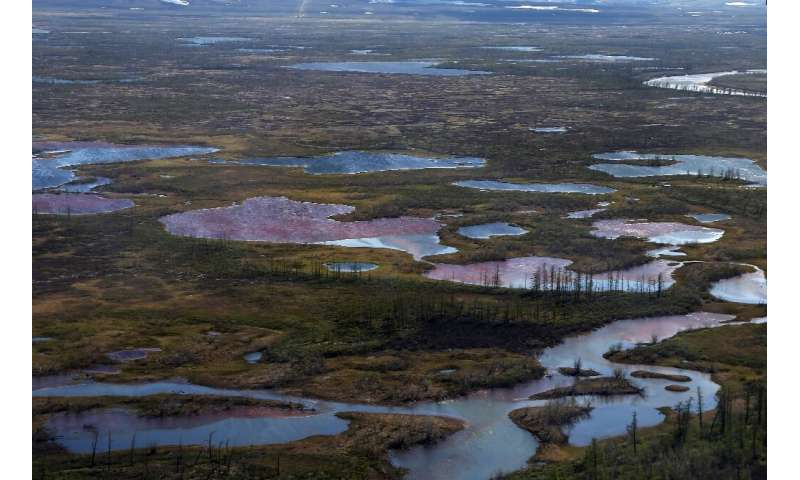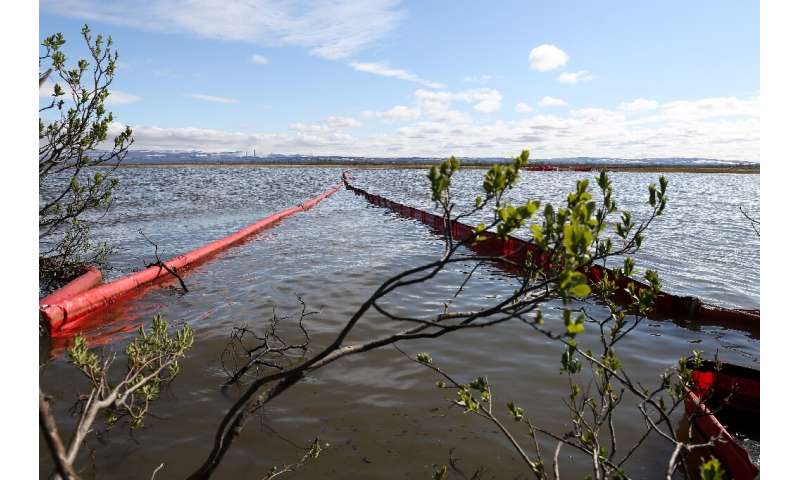Siberian oil spill contaminates Arctic lake

An oil spill that sparked a state of emergency has contaminated a freshwater lake in the Russian Arctic, the regional governor said Tuesday, a claim denied by Norilsk Nickel, the metals giant linked to the leak.
Russian President Vladimir Putin declared a state of emergency last week after 21,000 tonnes of diesel leaked from a fuel reservoir that collapsed May 29 outside the Arctic city of Norilsk.
The spill has polluted the ground and waterways, triggering a major clean-up effort.
Norilsk Nickel owns the power plant where the spill originated and its head Vladimir Potanin told Putin last week his company would pay for clean-up efforts estimated at $146 million.
A spokeswoman for the taskforce in charge of the accident clean-up told AFP last week that the spill had been contained.
But officials in the Siberian region of Krasnoyarsk this week said that high concentrations of polluted water had been discovered beyond floating barriers set in place to stop the fuel from spreading.
"The fuel has got into Pyasino as well. This is a beautiful lake about 70 kilometres (45 miles) long. Naturally, it has both fish and a good biosphere," said Krasnoyarsk region governor Alexander Uss, according to Interfax news agency.
He added that it was important to prevent spilled fuel from reaching the Pyasina River, a vital waterway for the region that flows from the lake into the Kara Sea.
At a video conference on Tuesday, Norilsk Nickel denied that the diesel had polluted the lake or risked reaching the Kara Sea.
"Our samples at the Pyasino Lake show 0.0 percent contamination results," said Sergei Dyachenko, the company's first vice-president and chief operating Officer.

"The distance from Pyasino Lake to the Kara Sea is more than 5,000 kilometres," he added.
Dyachenko said that "experts on the ground are confident that most of (the spill) can be cleaned," while this must be done before cold weather sets in.
Greenpeace criticises Russian authorities
Greenpeace director in Russia Vladimir Chuprov told AFP Tuesday that it would be a "disaster" if 10,000 tonnes or more of fuel had reached the lake, and criticised authorities for not giving more information about the extent of the spill.
Chuprov also warned of "harmful consequences" if the pollution reaches the Kara Sea, which he said Greenpeace feared would happen.
Its teams have been unable to access the site due to restrictions in place to slow the spread of the coronavirus, he said.
Russian officials have said that the thawing of permafrost as a result of climate change is the likely cause of the fuel tank leak.
Environmentalists and officials say the spill is the worst accident of its kind in the Arctic region, home to much of Russia's oil, gas and mining infrastructure and dogged by pollution since the Soviet era.
Russian officials have ordered a review of at-risk structures built on permafrost.
Norilsk Nickel officials acknowledged Tuesday that the company had not specifically monitored the permafrost up to now, saying it would carry out a complete audit of its buildings and infrastructure in the near future.
© 2020 AFP
No comments:
Post a Comment